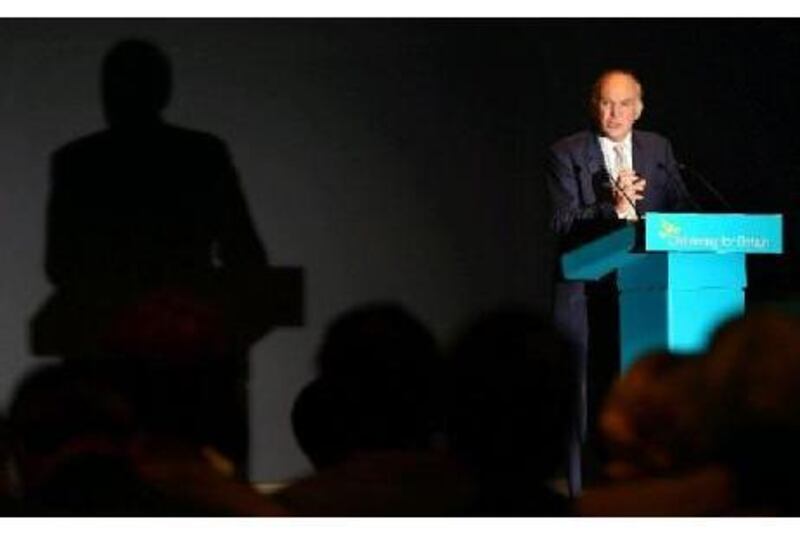Instead of turning off as is often the case when political parties hold their annual gatherings, Britons are hanging on to every word. Particularly when bankers are mentioned One down and two to go. Britain's political classes agree on what should be the main subject of debate at party conferences this year, whichever party they belong to. No speech at any of the three major conferences will be as important as the one that George Osborne, the chancellor of the exchequer, delivers to parliament on October 20 when he outlines spending restrictions until 2014.
Labour activists know what side of the debate they are on, but what of the Liberal Democrats, who now find themselves partners to the Tories in Government? The party that has long been mocked for its sandal-wearing followers suddenly has power. But would the party faithful embarrass their leadership and new-found allies by condemning the coalition's policies and sounding more left-wing than the Labour Party?
In the event, that failed to happen last week. On the whole, the party was mollified by the attention that power brings. The biggest talking point was the closing conference speech - a crowd-pleasing attack on business, delivered by Vince Cable, the business secretary. To outsiders looking in, it must have seemed very odd. Why would the business secretary denounce so thoroughly the private sector on which Britain depends to bring about a recovery?
Mr Cable attacked the "spivs and gamblers" in the City, said that markets were often "irrational or rigged" and announced he was "shining a harsh light into the murky world of corporate behaviour". It was a speech designed solely to sooth the discontented centre-left of his party and send them on their way thinking that they had not yet, entirely, sold their souls by joining in a coalition government with the Tories.
But it will also have a wider appeal to the public, for whom hatred of business, bankers and bonuses is not far below the surface. In truth, Mr Cable wasn't just helping his own reputation and promoting the Liberal Democrat moral probity here. He was also helping the Conservatives, the senior partners in the coalition, by reminding everyone that brakes have been applied to the harshest aspects of their policies.
The Conservative frontbenchers will no doubt return to this theme, by arguing that the medicine needed to reduce Britain's £168 billion (Dh976.21bn) of borrowings, could have been considerably stronger and might yet be, if forced on the country by an outside agent. So we turn to the Labour Party conference and can expect a renewed attack on what will be condemned as Tory cuts. The new leader needs to be able to oppose some of the government's cuts, without losing credibility on the need to cut the deficit.
While the coalition has pledged to eliminate the structural element of the deficit by 2015, Labour's most recent plan was to halve the fiscal deficit over five years. Whether the party decides to stick with that or opts for an even slower fiscal contraction remains to be seen. For the past five months, Labour has been absorbed by the leadership contest and its opposition to the Government has been weak. That has meant the coalition has been able to suggest wrongly that Labour has no plan at all to tackle the deficit. It won't get away with that for much longer.
And so to the last conference. The Conservatives must, above all, avoid any sign of triumphalism. Mr Osborne and David Cameron, the prime minister, must explain, again, why it is necessary to move quickly to cut spending and how it can be done without risking setting the recovery back. Finally, the party must also begin to look beyond that October deadline. Mr Osborne's work will get Britain only out of the remedial class.
There is a long way to go before the country reaches the economic top flight.





